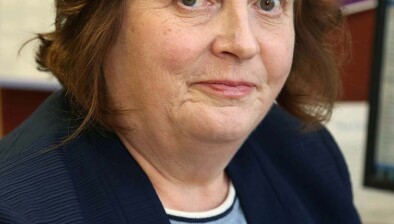FLAC welcomes change in law 18 months after O’Meara judgment

Eilis Barry
The legal advocacy group which led a Supreme Court battle on behalf of a bereaved family denied access to a social welfare payment has welcomed the passage of legislation righting that wrong.
The Social Welfare (Bereaved Partners and Miscellaneous Provisions) Bill 2025 has now been approved by both Houses of the Oireachtas and has been sent to the president to be signed into law.
The government introduced the bill in response to a Supreme Court ruling in January 2024, which found in favour of Johnny O’Meara and his children in quashing a previous decision to refuse him a widower’s contributory pension on the basis that he and his deceased partner were not married.
FLAC represented Mr O’Meara and his children in the landmark case.
The bill extends eligibility for the payment to qualified cohabitants who have been in an intimate and committed relationship for a period of two years, where there is a child or children of the relationship, or five years if otherwise.
Payments will commence from the date of the Supreme Court judgment, 22 January 2024, or later if the death is after this date. People will have six months from the date of enactment to make a claim where the death occurred before that date.
Because of these changes, the scheme will now be known as the bereaved partner’s (contributory) pension, to reflect the more inclusive nature of the payment.
The legislation also amends the eligibility criteria for other schemes: the widow’s, widower’s and surviving civil partner’s (non-contributory) pension, the widowed or surviving civil partner grant, and the death benefit scheme under the occupational injuries scheme.
Social protection minister Dara Calleary said: “I wish to acknowledge the loss that Johnny O’Meara and his family have suffered.
“I had the privilege of meeting with Johnny and heard his story first-hand. I was impressed by Johnny’s quiet determination and courage to see this case through all the way to the Supreme Court.
“This legislation will have an important impact for hundreds of people directly affected by the death of a loved one. It should also bring comfort to thousands of families and couples who may someday find themselves in that unfortunate position where a loved-one dies and they seek access to a pension from my Department.
“As we all know, death does not distinguish on any grounds and the loss of a loved one affects all equally.
“My Department will now prioritise communicating these changes in relation to the expansion of eligibility to qualified cohabitants and will ensure that payments issue to eligible people as soon as possible.
“I am very pleased that this landmark legislation has passed all stages of the Oireachtas. The bill will now be sent to President Higgins for signature.”
Eilis Barry, chief executive of FLAC, told Irish Legal News: “FLAC very much welcomes the provisions of the Bereaved Partner’s Pension Bill which give effect to the Supreme Court decision in O’Meara.
“FLAC was extremely proud to represent John O’Meara and his children in that landmark case.
“The legislation will have a significant positive impact for cohabiting couples and families who, like the O’Meara family, suffer a bereavement and the emotional and financial impact that that inevitably entails. In this respect, it is a landmark piece of legislation for the rights of diverse families.
“We also welcome the inclusion of bereaved cohabitants who do not have children in the expanded scope of the relevant social welfare schemes. This is not strictly required by the O’Meara judgment but it represents a compassionate and generous response to its findings.”
However, she added: “We are disappointed that the legislation will remove the entitlement of divorced and separated people to the payment. This entitlement has been in place for almost 30 years.
“We have grave concerns at the impact this may have on children who were dependent on maintenance from a parent who has died.
“This change was not required by the O’Meara decision.
“We acknowledge the minister’s commitment to review the legislation after it has been in place for a year and to make amendments to the scheme, if necessary, in the Social Welfare Bill 2027.
“However, it would have been preferable for an equality, human rights and anti-poverty risk assessment to have been conducted before the changes to the entitlement of divorced and separated people were enacted.”









